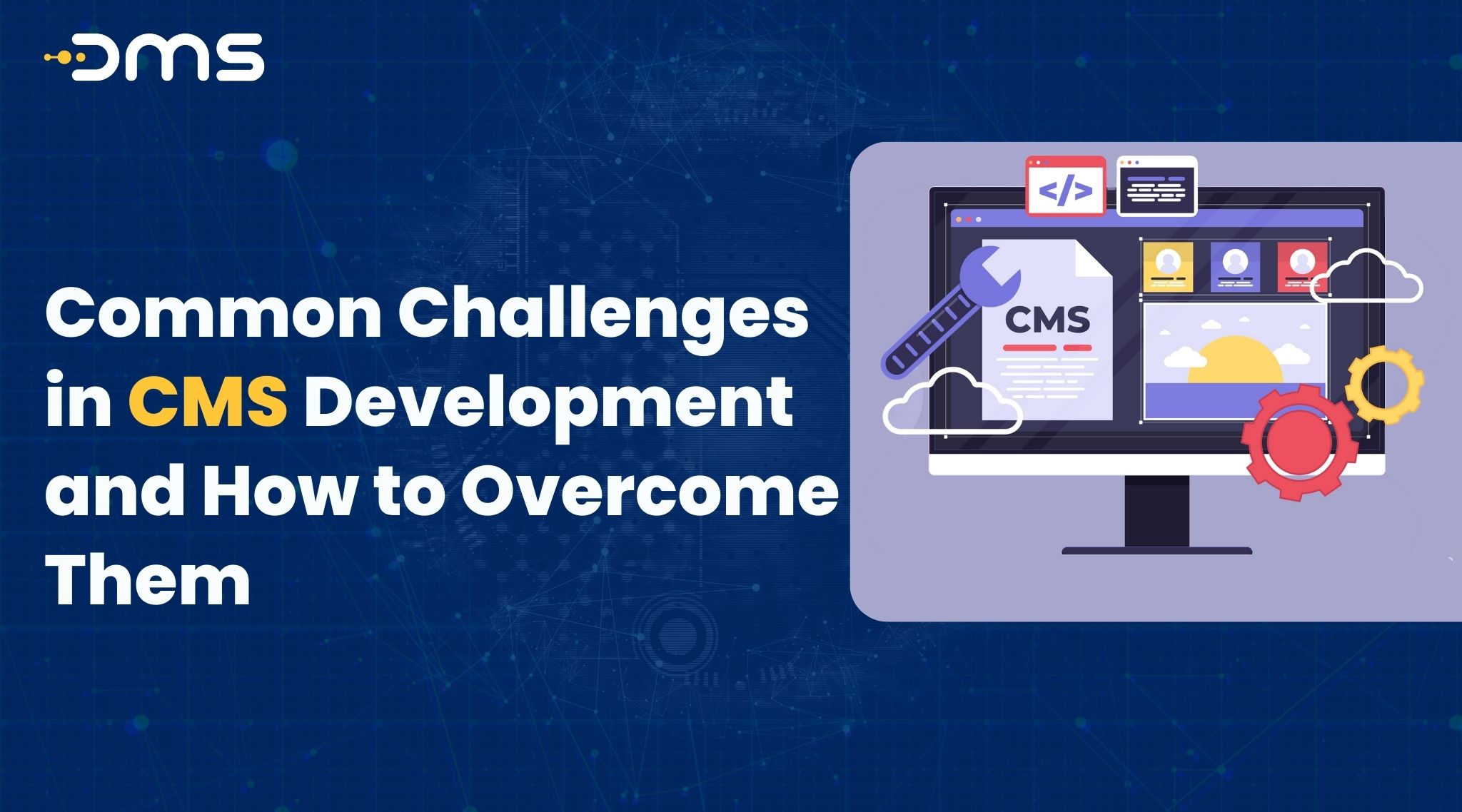Content management systems (CMS) are necessary for the creation and operation of websites, yet these systems are not without challenges. In this piece, we’ll look at a few of the issues that CMS developers frequently face and provide practical solutions.
Without the need for specialized technical knowledge, users can develop, manage, and publish digital content using a content management system (CMS). CMS development is a complex process that requires extensive planning, coding, testing, and maintenance. Developing a CMS presents many challenges, and overcoming these challenges requires careful planning, effective communication, and technical expertise.
Understanding CMS Development
Project managers, developers, designers, content producers, and system administrators are just a few of the stakeholders who participate in the interdisciplinary process of CMS creation. A thorough understanding of programming languages, web development tools, and content management principles is necessary to design a CMS. This CMS development includes the following phases:
- Planning and requirements gathering
- Design and prototyping
- Development and testing
- Deployment and launch
- Maintenance and support
Challenges in CMS Development
CMS development presents several challenges that developers must overcome to ensure the successful implementation of a CMS. Some of the most common challenges in CMS development are:
Lack of Planning and Documentation
A lack of planning and documentation can result in poorly designed, inefficient, and unmanageable CMS. Without a comprehensive plan, developers may encounter roadblocks, scope creep, and confusion, which can delay the development process and increase costs.
Poor User Experience
CMS should be user-friendly and easy to navigate. If the CMS is difficult to use or lacks essential features, content creators may become frustrated, leading to reduced productivity and user adoption.
Security Concerns
CMS development must prioritize security to protect confidential data, prevent unauthorized access, and ensure compliance with industry regulations. Security vulnerabilities in CMS can lead to data breaches, malware infections, and reputational damage.
Compatibility Issues
CMS development should ensure compatibility with different web browsers, operating systems, and devices. Incompatibilities can lead to website downtime, reduced performance, and a poor user experience.
Scalability Problems
CMS should be scalable to accommodate the growth of content, users, and functionality. A lack of scalability can lead to system crashes, data loss, and poor user experience.
Integration Problems
Systems and programmes like CRM (customer relationship management) software, e-commerce platforms, and social media platforms should interface with CMS without problems. Integration problems can lead to data silos, redundant data entry, and inefficient workflows.
Content Duplication and Versioning Issues
CMS must manage content duplication and versioning effectively to avoid confusion, inconsistencies, and errors. Content duplication can lead to storage issues, poor search engine optimization (SEO), and content redundancy. Versioning problems can lead to content loss, inaccurate information, and poor user experience.
Poor Performance
CMS should perform well, even under heavy traffic loads, to ensure a positive user experience. Poor performance can lead to slow page load times, website crashes, and lost revenue.
Lack of Customization Options
CMS should provide customization options to meet the specific needs of the organization. A lack of customization can lead to a poor fit with the organization’s processes, lost productivity, and user frustration.
Inefficient Workflow Management
CMS must support efficient workflow management to enable seamless collaboration and streamline content creation, editing, and publishing processes. Inefficient workflow management can lead to bottlenecks, missed deadlines, and poor content quality.
Limited Resources
CMS development requires adequate resources, including skilled personnel, time, and budget. Limited resources can lead to rushed development, reduced quality, and project failure.
Inadequate Testing
CMS must undergo thorough testing to ensure reliability, security, and usability. Inadequate testing can lead to bugs, security vulnerabilities, and poor user experience.
Poor Maintenance
CMS must undergo regular maintenance to ensure continued performance, security, and functionality. Poor maintenance can lead to system downtime, security breaches, and a poor user experience.
Overcoming CMS Development Challenges
To overcome the challenges of CMS development, developers must take the following steps:
Develop a Comprehensive Plan and Documentation
Developing a comprehensive plan and documentation can help developers avoid roadblocks, identify potential issues, and ensure efficient development. The plan should include clear objectives, timelines, and budgets.
Focus on User Experience
Developers should prioritize user experience by designing a user-friendly interface, providing essential features, and enabling customization options.
Address Security Concerns
Developers should implement security measures, such as encryption, authentication, and access control, to protect the CMS from security threats.
Ensure Compatibility
Developers should ensure compatibility with different web browsers, operating systems, and devices to ensure the CMS performs well and provides a positive user experience.
Design for Scalability
Developers should design the CMS to be scalable to accommodate future growth and changes.
Prioritize Integration
Developers should prioritize integration with other applications and systems to streamline workflows, reduce redundancy, and improve data accuracy.
Address Content Duplication and Versioning
Developers should implement features to manage content duplication and versioning effectively to ensure content consistency and accuracy.
Optimize for Performance
The performance of the CMS should be optimized by the developers in terms of page load times, server response times, and resource usage.
Allow Customization
Developers should provide customization options to meet the specific needs of the organization.
Implement Efficient Workflow Management
Developers should implement efficient workflow management to streamline content creation, editing, and publishing processes.
Allocate Sufficient Resources
Developers should allocate sufficient resources, including skilled personnel, time, and budget, to ensure successful CMS development.
Conduct Thorough Testing
To find and address bugs, security flaws, and usability problems, developers should perform extensive testing.
Establish Effective Maintenance Procedures
Developers should establish effective maintenance procedures to ensure the continued performance, security, and functionality of the CMS.
Conclusion
In the end, the procedure of creating a CMS can be challenging and complex. preparing, user experience, safety, reliability, scaling, integration, content management, performance, customization, workflow management, resource allocation, testing, and maintenance must be given top priority by developers in order to meet these requirements. Developers can construct a CMS that satisfies the unique requirements of the company and offers a satisfying user experience by adhering to these recommendations.


